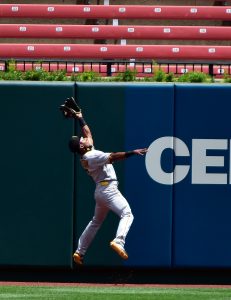The Blue Jays have optioned infielder Brandon Drury to their alternate training site and outrighted hurler Thomas Pannone, Shi Davidi of Sportsnet tweets. The Drury move clears roster space for newly acquired right-hander Taijuan Walker.
The 28-year-old Drury has been a massive disappointment for Toronto, which acquired him from the Yankees for lefty J.A. Happ before the July 2018 trade deadline. Drury, who had his moments with the Diamondbacks from 2015-17, struggled during his brief Yankees stint before they gave up on him. His issues have continued as a member of Toronto’s roster, as he owns a horrid .211/.254/.360 line with 15 home runs in 496 plate appearances. Drury’s minus-6 wRC+ across 49 plate trips this year ranks fifth to last among 300 major leaguers who have amassed at least 40 PA.
The left-handed Pannone, 26, had been in limbo since the Jays designated him Aug. 24, but he’ll stick with the organization after clearing waivers. Pannone, who combined for a 5.43 ERA/5.14 FIP over 116 innings from 2018-19, hasn’t pitched in the bigs this season.

